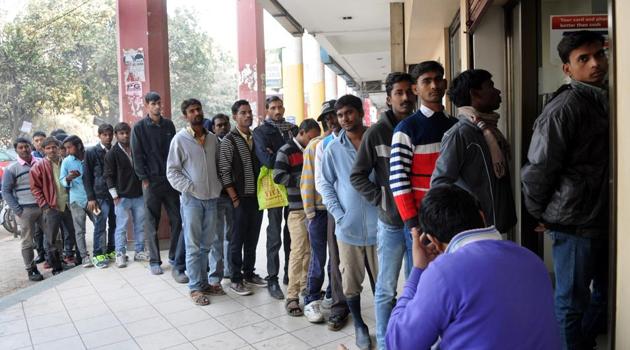After note ban, KYC-like norms likely for banking staff to curb malpractices
The banking sector is gearing up to put in place know-your-employee (KYE) guidelines as reports of bank staff helping people launder money following the November 8 demonetisation announcement continue to come in. To improve compliance, a policy to protect whistleblowers was also in the works, sources said.
The banking sector is gearing up to put in place know-your-employee (KYE) guidelines as reports of bank staff helping people launder money following the November 8 demonetisation announcement continue to come in .

“While it is important to follow the KYC (know-your-customer) norms, it is equally important to have a well thought out KYE norm, which naturally will have different indicators but at the same time, we must understand that it is unfair to brand all bank employees under one category,” a government official said.
To improve compliance, a policy to protect whistleblowers was also in the works, sources said.
Read: Note ban effect not adverse, sharp rise in tax collection, says FM Arun Jaitley
Several officials – from public as well as private banks -- have been suspended or arrested for opening fake accounts and violating cash-exchange rules after the government scrapped Rs 500 and Rs 1,000 banknotes in a crackdown on black money and counterfeit currency.
According to sources, “suspicious” deposits, or laundered money, that has come into the system after November 8 could well be over Rs 1 lakh crore, enough to fund the Digital India campaign.
Investigating agencies and the income-tax department have also found several people holding huge quantities of cash in new bills of Rs 2,000 introduced after November 8 along with a new Rs 500 note, as millions struggled for cash.
“While the cases are being investigated, this could not have been possible without the help of bank staff,” the official said.
Read: Modi to address nation on New Year’s eve, likely to talk about demonetisation
The surprise withdrawal of the high-value notes, which accounted for 86% of the currency in circulation, triggered a cash crunch, forcing millions of people to spend hours in queues outside banks and ATM kiosks.
Thousands of “suspicious” accounts are being scrutinised, with most banks appointing consultancy firms for a forensic audit.
The focus till now has been on adhering to KYC norms that allow banks to verify the identity of their customers. These guidelines are aimed at preventing identity theft and misuse of banks for laundering money and funding terror.
But, as reports of fake accounts and arrest of bank staff come in, the spotlight is firmly on bankers.
The government and Reserve Bank of India revised cash guidelines numerous times after November 8. Prime Minister Narendra Modi said the changes were made to stay ahead of the people exploiting the loopholes.
The RBI has also asked all banks to preserve the CCTV footage of the period between November 8 to December 30, the last day for depositing scrapped notes.
Read: Cong to launch protest over note ban, graft charges against PM Modi from Jan 6





